Why consult a Registered Psychologist?
Registered Psychologists are regulated healthcare providers who have specialized knowledge in:
How we feel, think, and behave;
How problems can develop in these areas of functioning; and
How to facilitate change in order to help reduce distress, resolve problems, and improve overall psychological health and well-being.
Training and experience in the integration of research with clinical practice enables Psychologists to choose up-to-date, effective, and ethical psychotherapy approaches to help meet the unique needs of each client.
Doctoral-level Psychologists have the most extensive education and formal training requirements of any healthcare provider in the field of mental health. Becoming a Psychologist requires an undergraduate degree in psychology and a minimum of six years of graduate training to earn a doctorate degree in psychology. During this time, Psychologists complete thousands of hours of formal clinical training in the assessment, diagnosis, and treatment of a wide range of difficulties related to mental health as well as conducting research. In addition to formal, supervised practica, a full year clinical internship must also be completed prior to receiving their doctoral degree. Psychologists are then required to complete another post-doctoral year of supervised practice and pass several licensing examinations in order to demonstrate that they meet the standards of practice set by the College of Psychologists of Ontario (CPO). The CPO is a regulatory body which functions to protect the public by assuring that Psychologists are accountable and maintain the highest standards of professional practice and conduct.
How do I make an appointment. Do I need a Physician’s referral?
You do NOT require a physician’s referral. To schedule an appointment you may contact me directly by telephone (416-485-9000) or email.
Most extended health insurers also do not require a physician’s referral for coverage of psychological services; however, it is best to check your insurer’s policy.
What should I expect from my first appointment?
The initial appointment involves a detailed assessment to understand you and your particular situation, current problems, background, and your strengths and resources in order to develop an appropriate plan for treatment. My goal is to help you feel comfortable and safe to talk openly about your concerns.
How long are the sessions and how often do we meet?
The initial psychological consultation appointment will last approximately 60-90 minutes. During this visit, a clinical interview and thorough psychological history will be conducted to better understand your presenting psychological concerns and any relevant factors contributing to your seeking treatment. At the conclusion of this appointment, therapy goals are discussed and a working psychological treatment plan is proposed. You might be requested to complete some additional forms and/or psychological questionnaires.
If I recommend therapy, I will work with you to develop a treatment plan, including goals and approximate time frames. Sometimes an individual’s primary concerns or symptoms are not within my area of expertise. If this happens, I will refer you to another professional who can help.
Subsequent appointments consist of 50-minute therapy sessions dedicated to collaboratively working on achieving therapy goals and revising the treatment plan as required. All decisions about therapy goals and the progression of treatment are made collaboratively between client and therapist. Therapy sessions typically occur once per week, although depending on the nature and severity of your problem(s), they may be more or less frequent.
Weekly sessions help to develop a strong therapeutic relationship and establish momentum toward achieving your treatment goals. Session frequency may be tapered as you progress and become more comfortable applying what you have learned in therapy.
How long will therapy last?
This is a reasonable question and difficult to predict. Research shows that the duration of therapy is variable and can be influenced by the specific therapy interventions used, the strength of the relationship with your therapist, as well as factors specific to you. These other factors may include your goals, personal characteristics, the nature, severity, chronicity, and complexity of the problem(s) you are experiencing, external factors such as what else is happening in your life and available social support, the extent to which you actively engage in the treatment, and how comfortable you are with making changes.
Depending on your specific needs and goals, therapy can be short-term, for a specific issue, or longer-term, to deal with recurrent life patterns or your desire for more in-depth personal growth. Some clients experience significant improvement very quickly (4-8 sessions) but generally treatment length ranges from 12-20 sessions for issues such as moderate anxiety or depression. More pervasive or chronic patterns of thinking, feeling, or behaving may require longer term treatment. Therapy is a collaborative process and your progress and goals will be discussed during the course of treatment.
Do you prescribe medication?
As a Registered Psychologist, I do not prescribe medication. I am fully respectful of individuals’ decision to use or not to use medication and I am happy to work collaboratively with Family Physicians and Psychiatrists in this regard.



